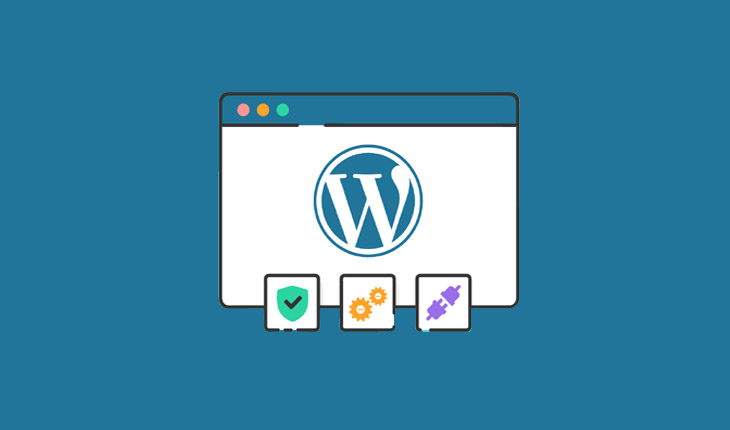WordPress offers a user-friendly interface, making it easy for beginners to create and manage websites. Additionally, the platform provides a wide range of themes and plugins to customize websites without needing extensive coding knowledge. 5 Important Reasons to Use WordPress in 2025
This flexibility and accessibility make WordPress a popular choice for individuals and businesses looking to establish a strong online presence.
WordPress’s popularity is also attributed to its strong community support and frequent updates. Users can benefit from a vast array of online resources, forums, and tutorials, enabling them to troubleshoot issues, learn new techniques, and stay up to date with the latest features. Moreover,
the platform’s regular updates ensure security and performance enhancements, making it a reliable and trusted option for website creation and management.
1. WordPress is Free as in Freedom
WordPress is an open-source program, which means it’s available for you to download, install, utilize, and customize to suit your requirements. It’s versatile enough to be used for creating any type of website. To delve deeper into this, check out our piece on the reasons why WordPress is offered for free.
Although WordPress software is available without charge, you are required to have a domain name and web hosting to set it up.
A domain name is essentially the URL of your website on the web. This is the address your visitors type into their browser’s URL bar to visit your site (for instance, wpbeginner.com).
For both hosting and domain name services, we suggest Bluehost. They rank among the top hosting firms globally and are recognized as an endorsed provider for WordPress hosting.
Looking for more hosting suggestions? Explore our list of the best WordPress hosting services.
If you prefer to have an expert handle the setup of your WordPress site, our skilled team members are eager to assist you with our totally free WordPress blog creation service.
Alternatively, you can attempt to set it up yourself by following our detailed instructions on how to install WordPress. 5 Important Reasons to Use WordPress in 2024
2. WordPress Is Easy to Use
WordPress is known for its user-friendly interface. This makes it easy for beginners to navigate through creating and managing a website without needing advanced technical skills. The intuitive design of WordPress allows users to customize their websites with themes, plugins, and widgets effortlessly.
WordPress also offers a wide range of themes and plugins that cater to various needs, making it versatile for different types of websites. Users can easily switch between themes to change the look and feel of their site, while plugins provide additional functionality such as SEO optimization, e-commerce capabilities, and social media integration.
The flexibility and scalability of WordPress make it a popular choice for individuals and businesses looking to establish a strong online presence.
3. WordPress Is Customizable
The majority of people who use WordPress aren’t web designers or programmers. In fact, many begin using WordPress without any prior experience in website design.
For those who aren’t familiar with technology, WordPress is an ideal choice because it offers thousands of free website templates (themes) to select from. There’s a WordPress theme available for nearly every type of website, including blogs, business sites, and online stores.
WordPress themes are simple to personalize since many of them include an options panel, which lets you adjust colors, add your logo, change the background, create attractive sliders, and fully customize it to your liking without needing to write any code.
4. WordPress Is SEO Friendly
The most outstanding website globally won’t achieve success without attracting any visitors or traffic. Fortunately, WordPress is designed to attract search engine traffic.
WordPress is developed with top-notch code and semantic markup. In simpler terms, this means Google and other search engines adore WordPress.
This is the reason why WordPress websites often appear higher in search engine results. To enhance your site’s visibility and attract more visitors, we suggest utilizing a WordPress SEO plugin.
What Kinds of Websites Can You Create With WordPress?
WordPress can be used in many different ways, from simple websites to eCommerce marketplaces and anything in between.
The following are just a few examples of different kinds of websites you can make with WordPress:
- Start a blog
- Make a business website
- Start an online store
- Build a membership website
- Sell online courses
- Sell digital downloads
- Create an online thrift store
Explore our comprehensive collection of various website designs that can be created with WordPress.
We believe this piece has provided the insight you were seeking on the advantages of choosing WordPress. The most effective method to truly appreciate WordPress’s capabilities is through its use. We encourage you to experiment with it and share your feedback with us.
Additionally, you might be interested in our perspective on whether WordPress is becoming obsolete and in learning more about the platform’s advantages and disadvantages.
If you found this article helpful, we invite you to subscribe to our YouTube Channel for WordPress video guides. You can also discover us on Twitter and Facebook.
WordPress offers a wide range of themes and plugins, allowing you to personalize your website easily. This flexibility is crucial for creating a unique online presence and catering to your specific needs.
In addition to themes and plugins, WordPress also provides customization options through its intuitive drag-and-drop editor, which enables users to easily design and modify their website layout without needing extensive coding knowledge. This user-friendly interface empowers individuals and businesses to tailor their online platforms to reflect their brand identity and engage with their target audience effectively.
Moreover, WordPress offers a variety of customization options for content creation, such as the ability to schedule posts, create different types of content (e.g., blog posts, pages, portfolios), and manage media libraries. These features contribute to a seamless content management experience, enabling users to maintain a dynamic and engaging website that aligns with their digital marketing strategies.

